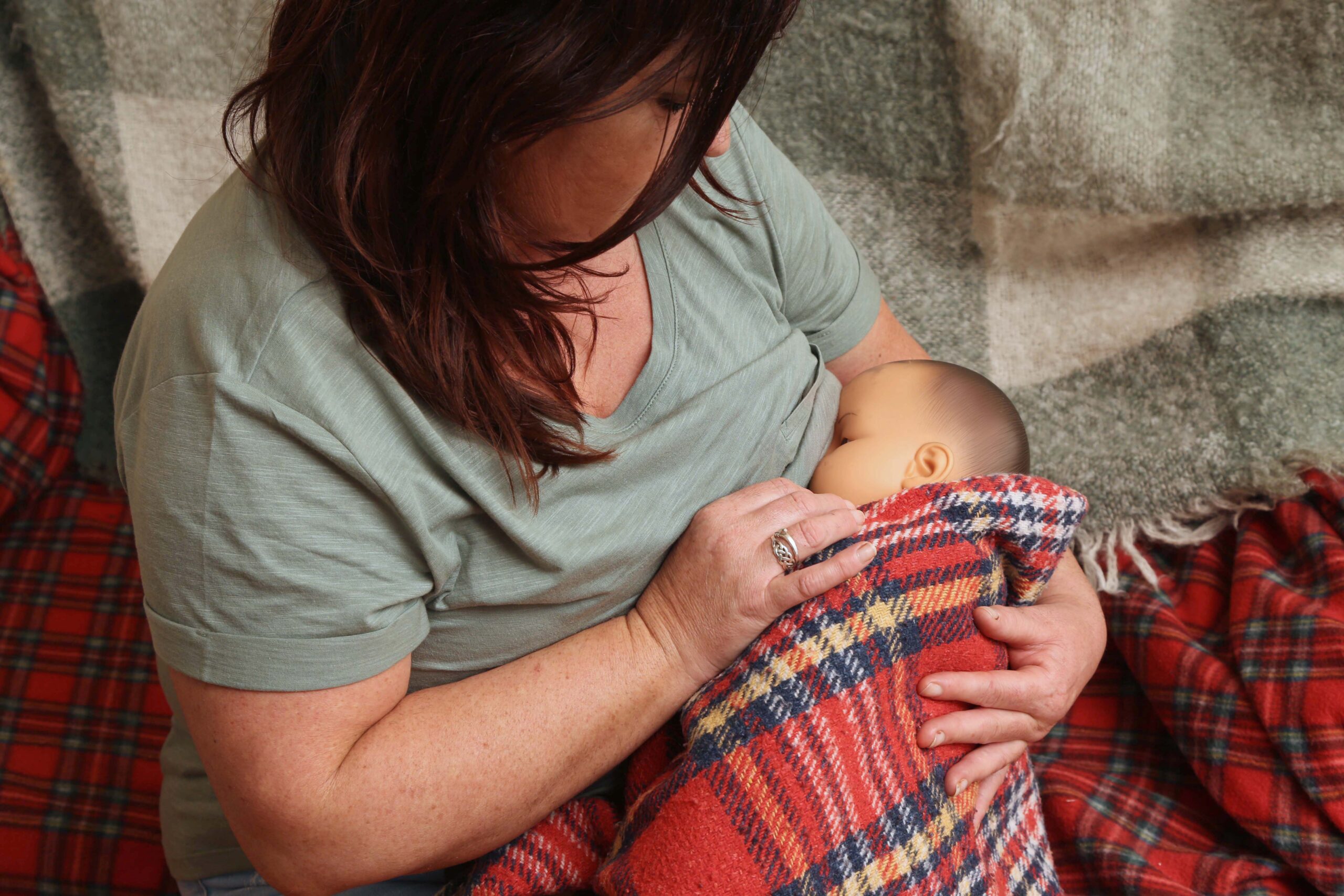On Thursday, Pavee Point participated at an important national webinar on Infant Feeding and Traveller Health hosted by the HSE Child Health Public Health / National Healthy Childhood Programmes. The webinar brought together a range of health professionals – including PHNS/lactation consultants and maternity staff – to discuss some of the challenges and recommendations, in relation to breastfeeding, for Traveller women and infants. Pavee Point provided inputs at the webinar and highlighted key barriers for Traveller women who seek to breastfeed, as well as the importance of anti-racism training and the implementation of a universal ethnic identifier in the maternity services datasets.
As highlighted in our report in 2021, Traveller women traditionally would have always breastfed. However, similar to trends in the general population, breastfeeding has significantly decreased amongst Travellers, with the All Ireland Traveller Health Study reporting that just 2% of Traveller women breastfeed. Our report highlights that while Traveller women, like other women in Ireland, face a number of barriers to breastfeeding, such as limited support from health providers and family members, they also contend with additional barriers including:
- Overcrowded accommodation, lack of privacy and lack of basic facilities such as electricity and water
- The impact of the Beutler Test in initiating breastfeeding (all Traveller children need to be tested for Classical Galactosaemia before they can be breastfed)
- Lack of culturally appropriate and accessible information about breastfeeding
- Lack of Traveller role models
- Need for ethnic data
Breastfeeding offers enormous health benefits for both baby and mother. Increasing culturally appropriate support and education around breastfeeding is key to improving long-term health outcomes in the community. But significant barriers exist that need to be addressed.
One major issue discussed yesterday was galactosemia, a rare genetic disorder that affects the baby’s ability to process a sugar found in breast milk, leading to a risk of liver problems, infection and abnormal bleeding. This condition disproportionately affects Traveller families and has understandably led to fear and uncertainty around breastfeeding. Families have to wait a few days after birth for the results of the “heel prick” test (or Beutler test) to find out if their baby has the condition. By then, many mothers have already been discouraged from breastfeeding or are not aware that they can pump milk, and bottle feed it to their baby without risk, while waiting on the test results.
Pavee Point is working with the Rotunda Hospital and CHI Temple Street on an innovative pilot which offers prenatal testing for couples. Winnie McDonnell spoke at the webinar about this pilot which was initiated by Pavee Point following requests from Traveller women wishing to breastfeed but experiencing significant delays in receiving their Beutler tests resulting in hesitancy around breastfeeding. This pilot offers the test during pregnancy at an early stage allowing Traveller women to plan ahead with confidence, whether by preparing for breastfeeding or by receiving advice on a special formula that is needed if galactosemia is detected.
Maria McDonnell also spoke about recommendations for healthcare providers in practice to promote breastfeeding among Traveller mothers and overcome barriers in the community.
The importance of collecting ethnic data (within a human rights framework) was discussed and the need for maternity service staff to be trained to ask the question confidently and understand the rationale and purpose for collecting data. Most maternity units in Ireland collect information in relation to ethnicity, however, this isn’t always consistent or in line with a human rights based approach. This information is vital to inform policy and service provision. Due to experiences of racism and discrimination experienced with maternity service providers, many Traveller women often do not self-identify as women do not feel safe to declare their ethnicity on healthcare paperwork leading to lower healthcare outcomes.
You can access more information in our leaflet on breastfeeding or watch our videos providing information on breastfeeding and galactosemia.

